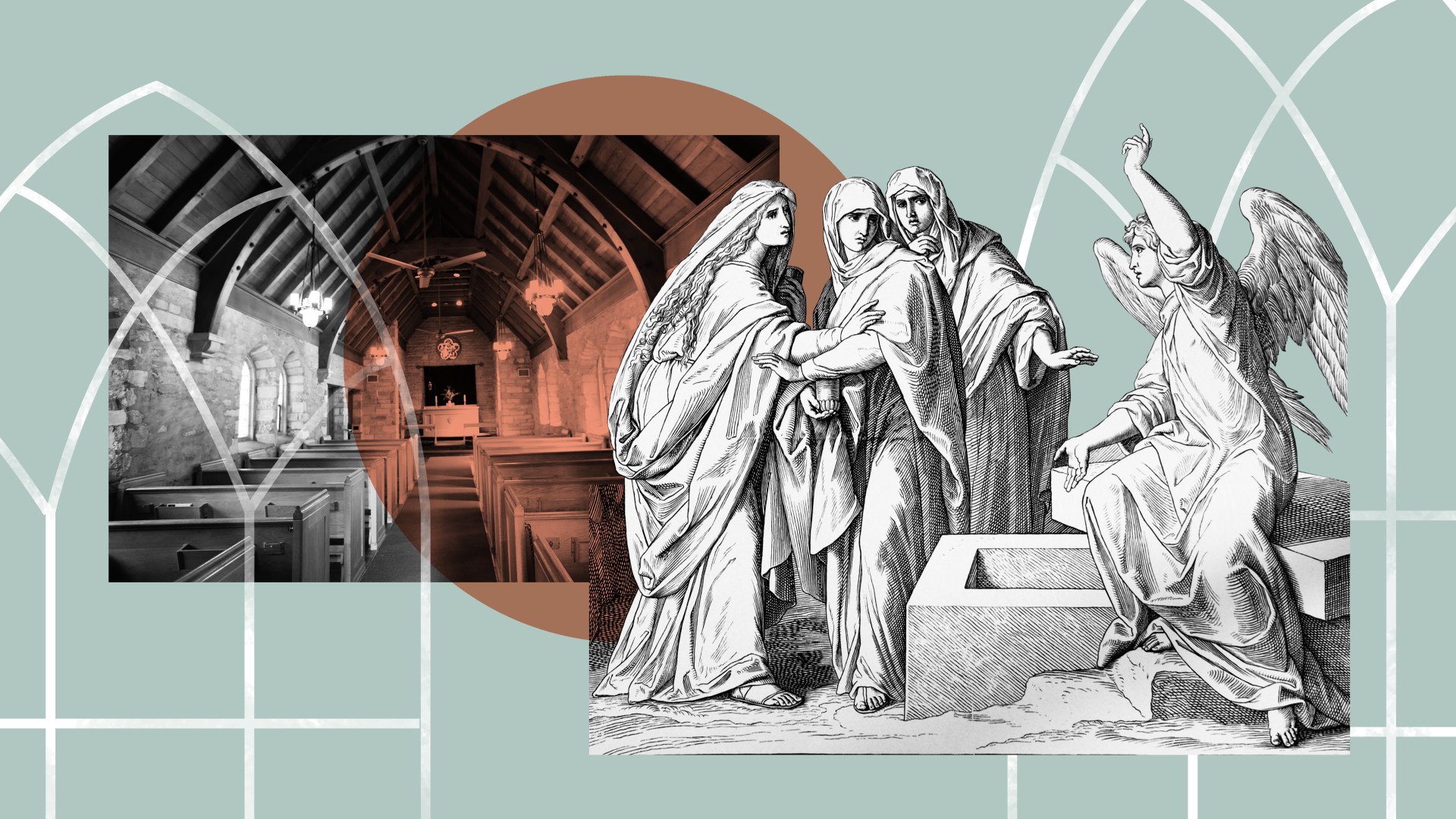Empty churches on Easter Sunday around the world represent an image that, until this year, would have made sense only in a fever-pitched 1990s end-times novel. Yet, in the middle of a global pandemic, that will now be our reality. The grief that Christians already face over missing their church services for necessary social distancing will intensify when it comes to the preeminent day on the Christian calendar. But if we pay attention, we may see something new and holy about Easter in quarantine. And that something is fear.
At first glance, fear seems alien to Easter, belonging more to Good Friday. Even our hymnody reflects this. “Were You There When They Crucified My Lord” is in lyric and tune foreboding, while “Up From the Grave He Arose” peals triumphant. This makes musical sense. Good Friday evokes the emotions the first disciples experienced when they thought all was lost and the noon skies above them turned dark. By contrast, Easter evokes a new dawn, the truth that “everything sad is coming untrue.”
And yet, the Gospel accounts are not so neatly categorized by emotion. The first reactions to the Resurrection were confusion and fear. The guards at the tomb “trembled and became like dead men” at the sight of the angel there (Matt. 28:4, ESV). To the faithful women, Mary Magdalene and the other Mary, the first words spoken by the angel were “Do not be afraid; for I know that you seek Jesus who was crucified. He is not here, for he has risen, just as he said” (vv. 5–6).
The first reactions to the Resurrection were confusion and fear.
Upon hearing the angel, the women were filled with “with fear and great joy” (v. 8). They then ran right into the risen Jesus, who repeated the angel’s words, “Do not be afraid” (v. 10). The earliest record of the Resurrection, from Mark’s gospel, closes with the women fleeing the empty tomb, “for trembling and astonishment had seized them, and they said nothing to anyone, for they were afraid” (Mark 16:8).
One could imagine, of course, a less traumatic Resurrection, in keeping with the natural rhythms of the world—except that the Resurrection was wholly unnatural, naturally eliciting fear and alarm.
The Resurrection is not a timeless truth about the immortality of the human being, or the reassurance that everything works out in the end. The Resurrection takes place in a graveyard, a reminder that, left to ourselves, every one of us will retreat to the dust from which we came. Thus Jesus said to Martha, “I am the resurrection and the life” (John 11:25). He is the only one of us who has “life in himself” (John 5:26).
The resurrection of Jesus does indeed destroy fear, pulling us out of slavery from the fear of death (Heb. 2:14–15). But that freedom from fear does not come the way we usually pursue it, through denial and the illusion of immortality. On the contrary, to see fully the glory and mystery of the resurrection of Jesus, we must feel the just sentence of our own deaths, the inevitability, apart from him, of our own demise. The Resurrection shows us our lives hidden in Christ, which means that on our own, we are the walking dead. The Resurrection means we follow Jesus where he went, toward where he is. “Whoever wants to be my disciple must deny themselves and take up their cross and follow me,” Jesus said (Mark 8:34, NIV). Easter is not the end of our carrying our crosses but the beginning.
This is terrifying when you think of it. And Jesus means for you to think of it. Only then can you listen to the Shepherd who walks you through the valley of the shadow of death. Only then can you know what it means to know “Because he lives, all fear is gone.”
Many Christians around the world will not gather this Easter. Our churches empty, we will wait in our respective homes, hopeful that our collective efforts to mitigate the spread of Covid-19 will prove effective, while still alarmed that we may yet witness thousands more of our neighbors die, and millions more sick, from a brutal disease. This Easter, we do not know which of our loved ones, or which of us, will die alone on a ventilator, unable even to see the face of the nurse behind a protective mask. Let us experience that fear, and then let us turn to Christ to be reminded that death is awful but, in Christ, death is defeated.
This Easter, our churches will be empty. That’s scary. But the tomb is still empty too. Do not be afraid.
Russell Moore is the president of the Ethics & Religious Liberty Commission of the Southern Baptist Convention.










